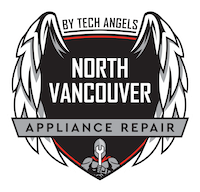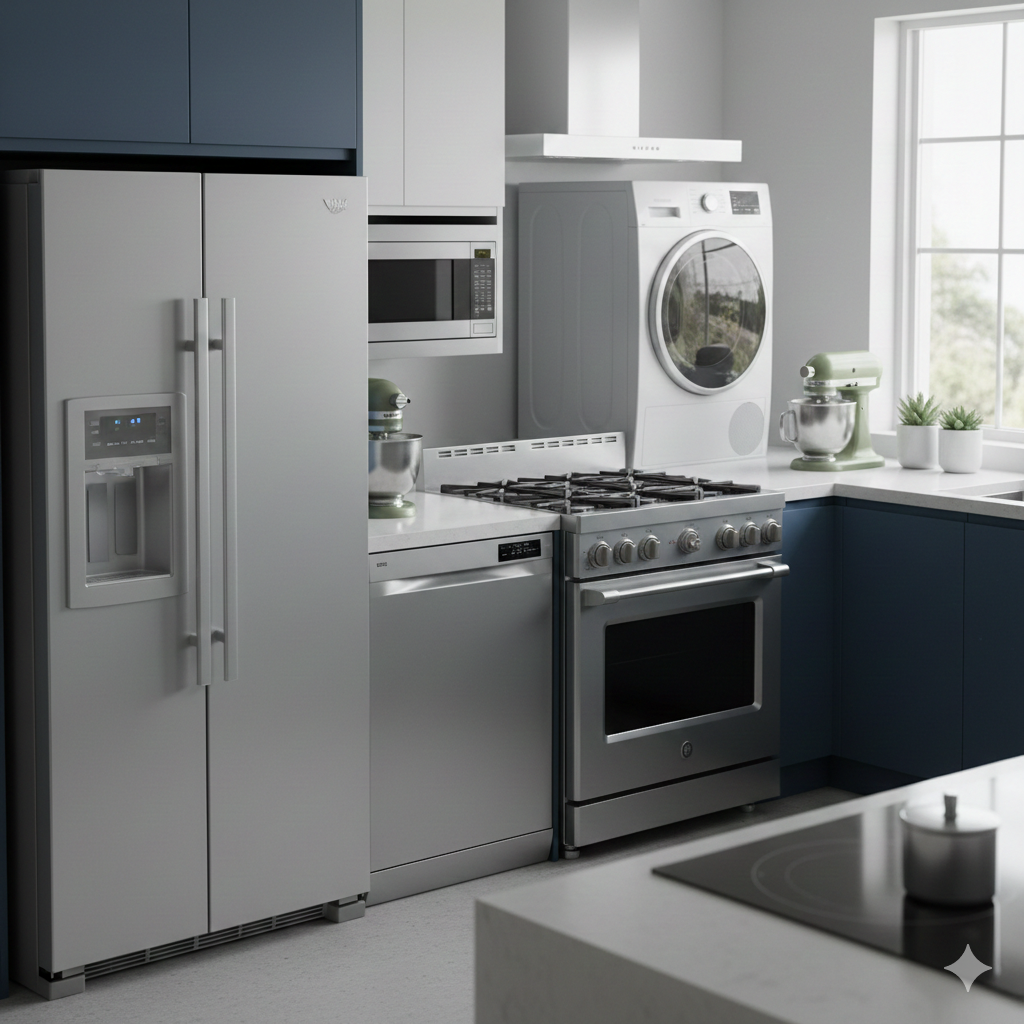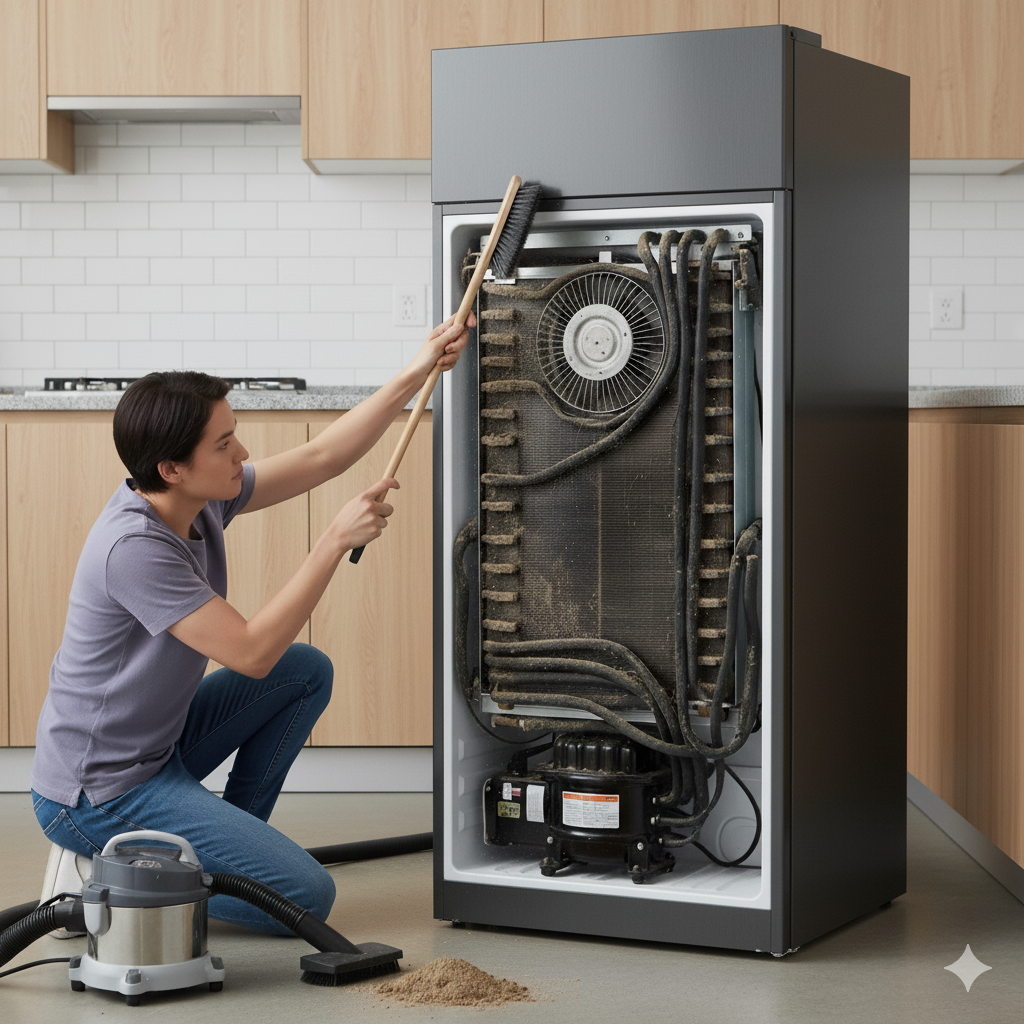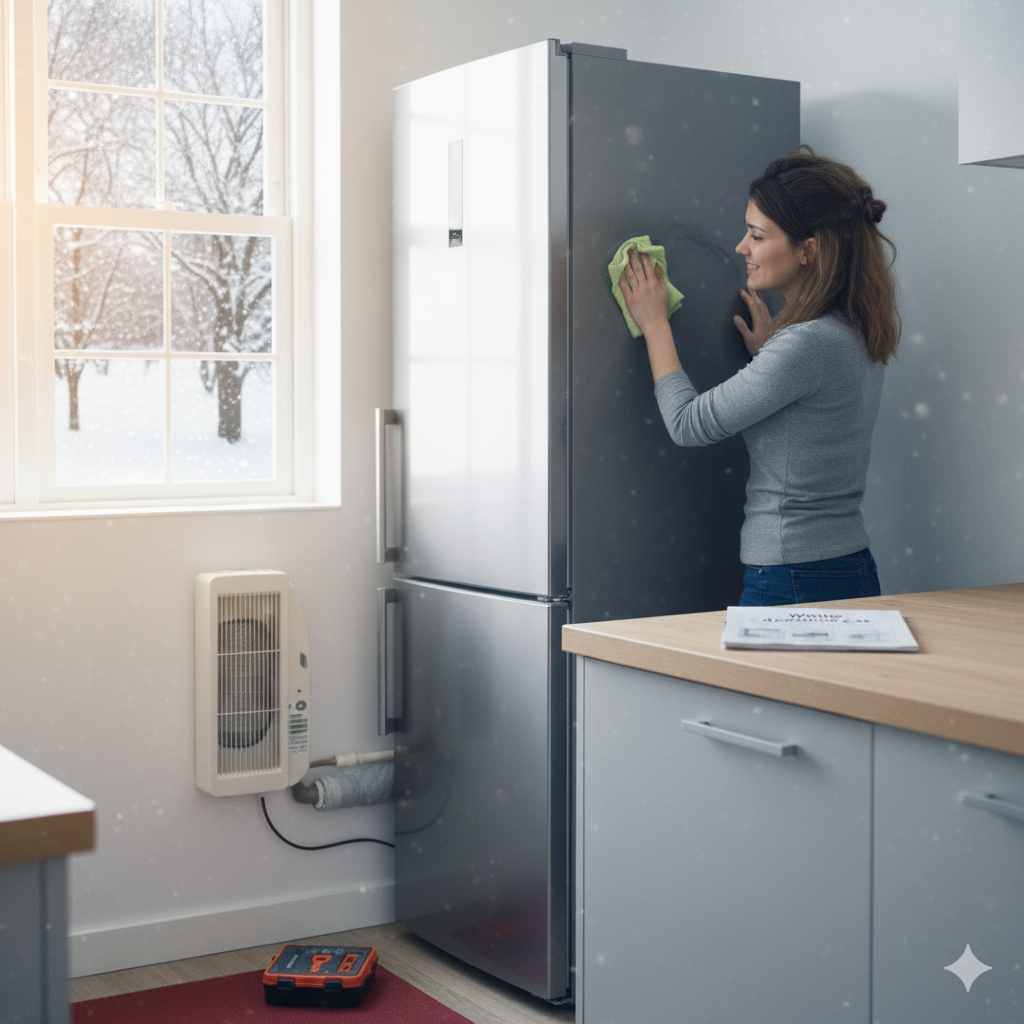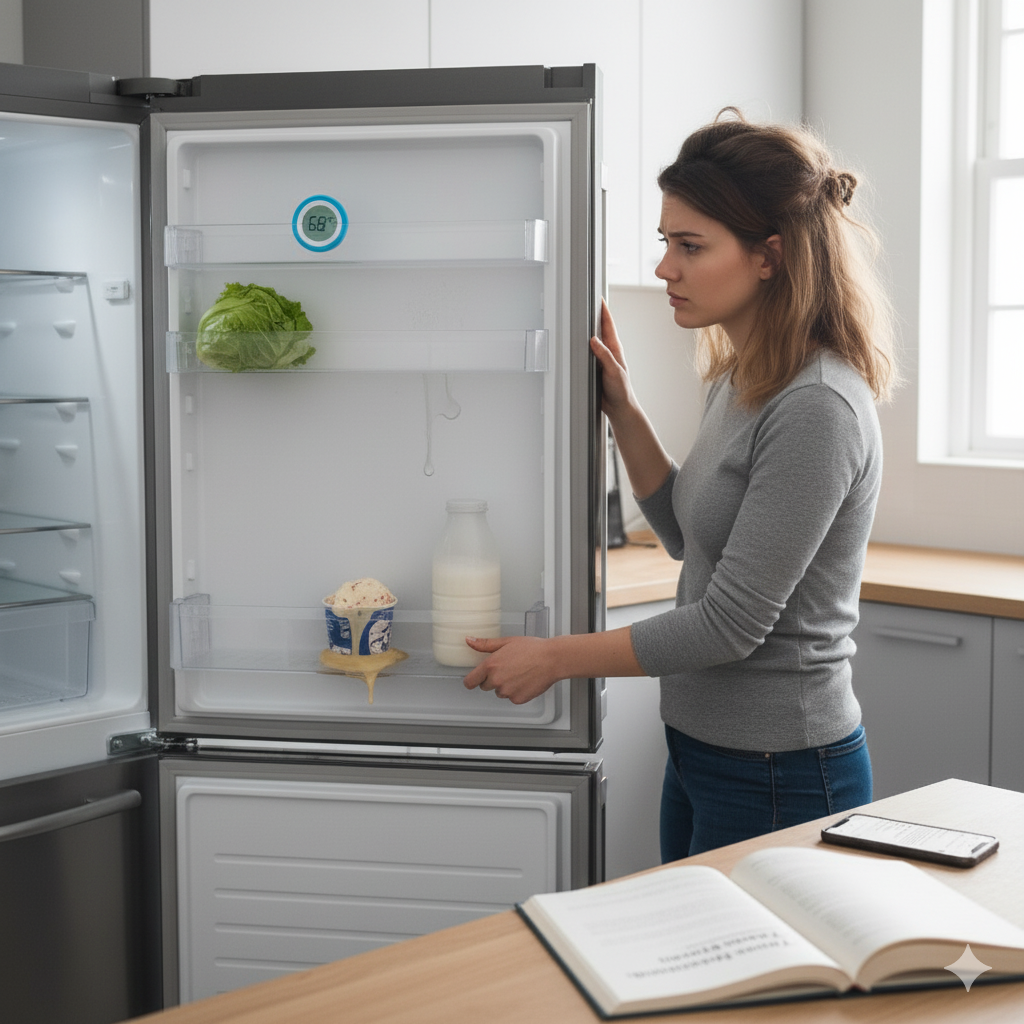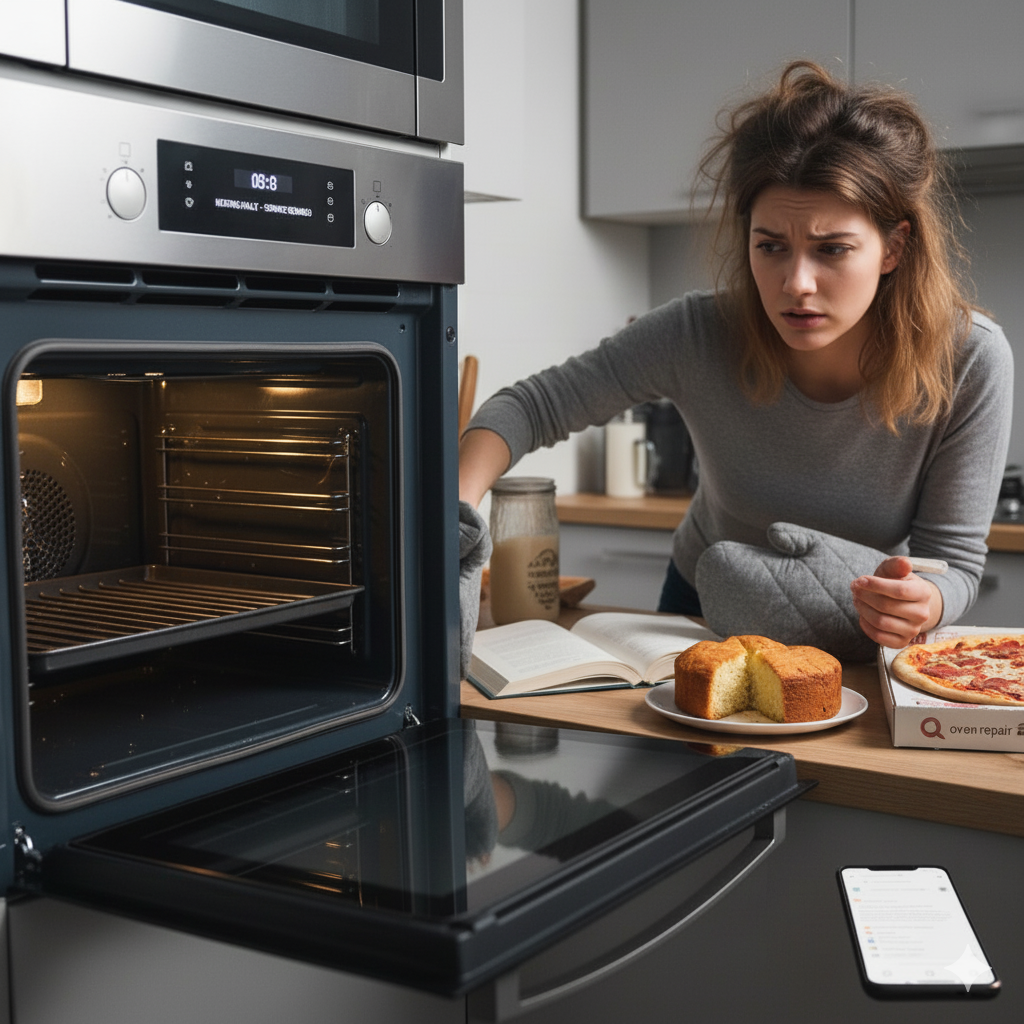Refrigerators are essential in every Canadian household, keeping food fresh and safe. However, like any complex machine, they can develop issues over time. At North Vancouver Appliances, we understand how frustrating refrigerator problems can be. That’s why we’ve compiled this comprehensive guide to the top five common refrigerator issues and their solutions. Whether you’re dealing with a noisy compressor or a fridge that won’t cool, we’ll walk you through troubleshooting steps and tell you when to call professionals like our certified technicians. Let’s dive in!
1. Refrigerator Not Cooling Properly
One of the most common refrigerator complaints is that it’s not keeping food cold enough. A fridge that’s not cooling can lead to spoiled food and wasted money. This issue can stem from various causes, ranging from simple fixes to more complex repairs.
Causes
- Dirty Condenser Coils: Over time, dust and debris accumulate on the condenser coils, reducing their ability to dissipate heat.
- Faulty Evaporator Fan: If the fan isn’t circulating cold air, the fridge won’t cool effectively.
- Thermostat Issues: Incorrect settings or a malfunctioning thermostat can prevent proper cooling.
- Blocked Vents: Overloading the fridge can block airflow, hindering cooling efficiency.
- Leaking Refrigerant: A refrigerant leak can significantly reduce cooling capacity.
Solutions
- Clean the Condenser Coils: Locate the coils (usually at the back or bottom of the fridge) and use a vacuum or coil brush to remove dust. Perform this maintenance every six months to keep your fridge running smoothly.
- Check the Evaporator Fan: Open the freezer compartment and listen for the fan. If it’s not running, it may need replacement. This is a job best left to professionals.
- Adjust the Thermostat: Ensure the fridge is set to 37–40°F (3–4°C) and the freezer to 0°F (-18°C). If the settings are correct but cooling is still poor, the thermostat may be faulty.
- Clear Blocked Vents: Organize food to avoid blocking air vents inside the fridge. Proper airflow is critical for consistent cooling.
- Inspect for Refrigerant Leaks: If you suspect a leak, contact a professional immediately, as handling refrigerant requires specialized equipment and certifications.
When to Call a Professional
If cleaning the coils and adjusting settings don’t resolve the issue, it’s time to call in experts. Problems like evaporator fan failures or refrigerant leaks require technical expertise. Our team at North Vancouver Appliances offers refrigerator repair services to diagnose and fix these issues quickly.
2. Refrigerator Making Strange Noises
A refrigerator should hum quietly in the background, so unusual noises like buzzing, rattling, or grinding can be alarming. These sounds often indicate a mechanical issue that needs attention.
Causes
- Loose Components: Vibrations can loosen parts like the drain pan or condenser fan.
- Faulty Compressor: A worn-out compressor may produce buzzing or clicking sounds.
- Evaporator Fan Issues: Ice buildup or a failing fan motor can cause rattling or screeching.
- Defrost System Malfunctions: A stuck defrost timer or heater can lead to noisy operation.
Solutions
- Tighten Loose Parts: Check the drain pan (usually under the fridge) and ensure it’s secure. Inspect the condenser fan for loose blades or debris.
- Listen to the Compressor: The compressor, located at the back, may make occasional clicks as it cycles. Persistent buzzing or loud noises suggest it’s failing and needs professional attention.
- Inspect the Evaporator Fan: If noises come from the freezer, ice buildup on the fan may be the culprit. Defrost the fridge by unplugging it for 24 hours. If the noise persists, the fan motor may need replacement.
- Test the Defrost System: A noisy defrost system may indicate a faulty timer or heater. This repair requires technical skills, so consider scheduling a service.
When to Call a Professional
Persistent or loud noises often point to serious issues like compressor failure. Our appliance repair experts at North Vancouver Appliances can pinpoint the source and restore quiet operation.
3. Water Leaking Inside or Around the Refrigerator
Finding water pooling inside or around your fridge is a common but frustrating issue. Leaks can damage floors and lead to mold growth if not addressed promptly.
Causes
- Clogged Defrost Drain: Food particles or ice can block the drain, causing water to back up.
- Damaged Water Filter: A cracked or improperly installed filter can leak.
- Faulty Door Gasket: A worn gasket may allow warm air to enter, causing condensation.
- Cracked Drain Pan: The pan collecting defrost water may crack over time.
Solutions
- Clear the Defrost Drain: Locate the drain (usually in the freezer floor) and flush it with warm water using a turkey baster. A mixture of water and baking soda can help remove stubborn clogs.
- Check the Water Filter: Ensure the filter is correctly installed and not damaged. Replace it if necessary, following the manufacturer’s instructions.
- Inspect the Door Gasket: Clean the gasket with warm, soapy water and check for tears. If it’s damaged, replace it to prevent condensation.
- Examine the Drain Pan: If the pan is cracked, replace it. This is a simple fix, but accessing the pan may require moving the fridge.
When to Call a Professional
If leaks persist after clearing the drain or replacing the filter, there may be an issue with internal components.
4. Freezer Frost Buildup
Excessive frost in the freezer can reduce storage space and strain the appliance, leading to higher energy bills. While some frost is normal, heavy buildup indicates a problem.
Causes
- Faulty Door Seal: A damaged gasket allows warm air to enter, causing frost.
- Defrost System Failure: A malfunctioning defrost heater, timer, or thermostat can prevent automatic defrosting.
- Frequent Door Openings: Opening the freezer too often introduces humid air, leading to frost.
Solutions
- Check the Door Seal: Ensure the gasket is clean and intact. Replace it if it’s torn or loose.
- Test the Defrost System: Manually defrost the freezer by unplugging the fridge and letting it sit for 24 hours. If frost returns quickly, the defrost system may need repair.
- Minimize Door Openings: Encourage household members to limit freezer access and avoid leaving the door open.
When to Call a Professional
Defrost system repairs require specialized tools and knowledge. Our technicians at North Vancouver Appliances can fix defrost issues efficiently, ensuring your freezer stays frost-free.
5. Refrigerator Cycling On and Off Too Frequently
If your refrigerator turns on and off more often than usual, it’s working harder than necessary, which can shorten its lifespan and increase energy costs.
Causes
- Dirty Condenser Coils: As mentioned earlier, dirty coils force the fridge to cycle more frequently.
- Faulty Thermostat: A malfunctioning thermostat may misread temperatures, causing erratic cycling.
- Overloaded Compressor: A struggling compressor may shut off prematurely.
- Poor Ventilation: Placing the fridge in a cramped space can cause overheating and frequent cycling.
Solutions
- Clean the Condenser Coils: Regular cleaning prevents the compressor from overworking.
- Check the Thermostat: Test the thermostat settings and replace it if it’s faulty. This may require professional assistance.
- Ensure Proper Ventilation: Leave at least 2–3 inches of space around the fridge for airflow. Avoid placing it near heat sources like ovens.
- Inspect the Compressor: Frequent cycling due to compressor issues is complex and requires expert diagnosis.
When to Call a Professional
If cleaning the coils and improving ventilation don’t help, the issue may lie with the thermostat or compressor. Schedule a service with North Vancouver Appliances to address these problems.
Preventive Maintenance Tips
To avoid these common refrigerator issues, regular maintenance is key. Here are some tips to keep your fridge in top shape:
- Clean Regularly: Wipe down the interior, clean gaskets, and vacuum condenser coils every six months.
- Check Temperature Settings: Ensure the fridge and freezer are at optimal temperatures.
- Replace Water Filters: Change filters every six months or as recommended by the manufacturer.
- Avoid Overloading: Don’t overstuff the fridge, as this restricts airflow.
- Schedule Professional Checkups: Annual inspections by certified technicians can catch issues early.
For more maintenance advice, visit our blog
Why Choose North Vancouver Appliances?
At North Vancouver Appliances, we pride ourselves on delivering fast, reliable, and affordable repair services across North Vancouver and surrounding areas. Our certified technicians are trained to handle all major refrigerator brands and models, ensuring your appliance is back to peak performance in no time. Whether it’s a simple fix or a complex repair, we’ve got you covered.
Don’t let refrigerator problems disrupt your daily routine. Contact us today for expert refrigerator repair services or to schedule a maintenance check. Visit our contact page to book an appointment or learn more about our services.
Conclusion
Refrigerator issues like poor cooling, strange noises, leaks, frost buildup, and frequent cycling can be frustrating, but many can be resolved with simple troubleshooting. By understanding the causes and solutions outlined in this guide, you can tackle minor problems yourself and know when to call professionals. At North Vancouver Appliances, we’re here to help with expert repairs and maintenance tips to keep your fridge running smoothly. Explore our blog or contact our team today for more appliance care advice!
